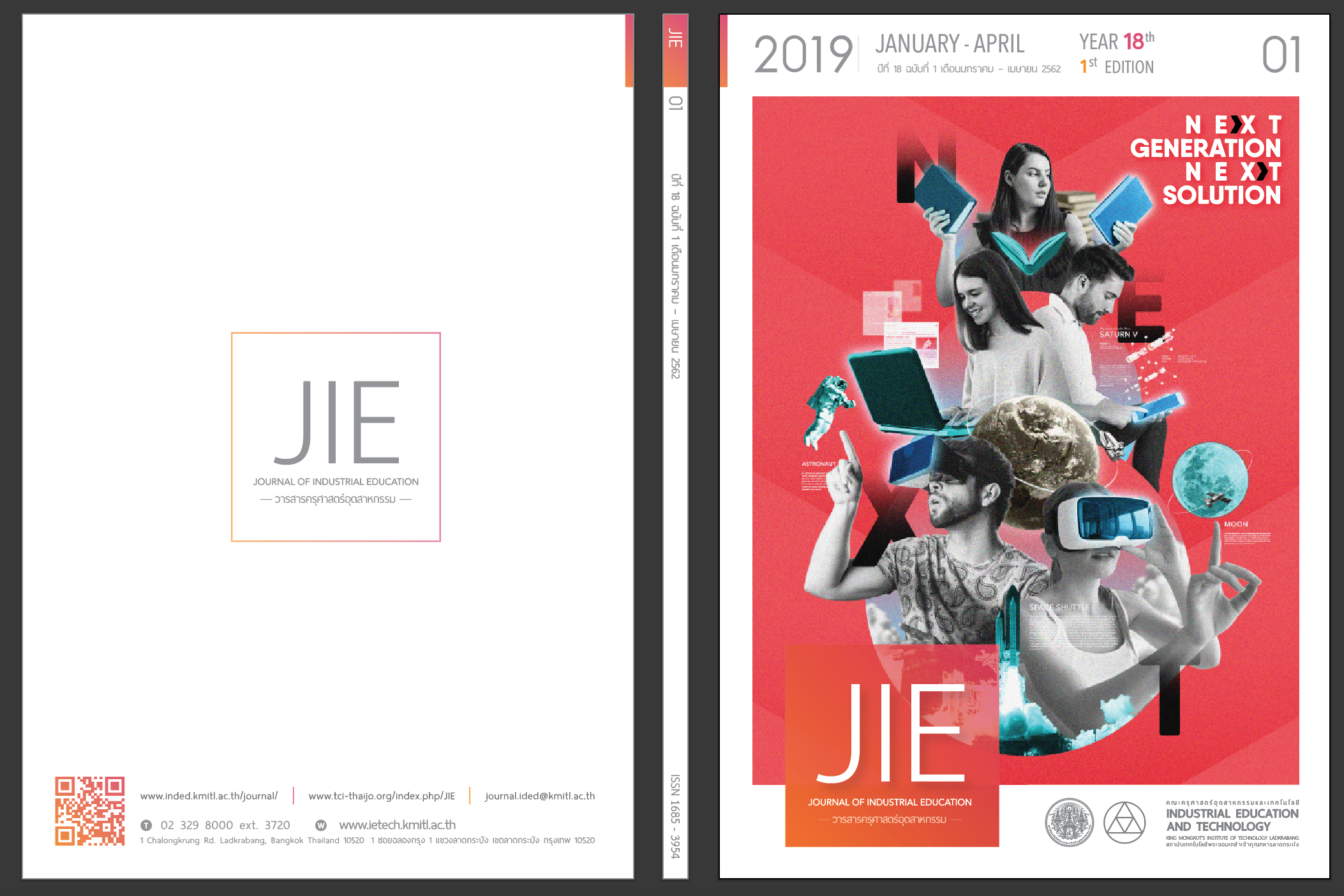THE ASSESSMENT AND EFFICIENCY OF THE COURSEWARE ACCORDING TO A SOCIAL NETWORK LEARNING MODEL FOR COLLABORATIVE FLIPPED CLASSROOM UNDER PROJECT-BASED LEARNING ENVIRONMENT
Keywords:
Social Network, Flipped Classroom, Collaborative Learning, Project-Based LearningAbstract
The aims of this research were 1) to assess the courseware quality and efficiency of a Social Network Learning Model for Collaborative Flipped Classroom under Project-Based Learning Environment, and 2) to compare the learning achievement of learners, and 3) to assess the self-learning and team work of learner skills. The research tools were the courseware of a Social Network Learning Model for Collaborative Flipped Classroom under Project-Based Learning Environment, the questionnaire for the courseware quality, the pretest and posttest, and the questionnaire to assess the self-learning and team work of learner skills. The research tools were evaluated by 5 experts. The research sample consisted of 35 students from majoring in Technology Multimedia, Nakhon Pathom Rajabhat University who were selected using simple random sampling. The statistics used for data analysis were mean, standard deviation, and t-test dependent samples. The results were: 1) The assessment of overall quality on content and production techniques was at highest level, and the efficiency of a Social Network Learning Model for Collaborative Flipped Classroom under Project-Based Learning Environment was at 1.42 according to the Meguigans criteria, and 2) The comparison the learning achievement of learners after studying higher than before study which significantly at .05, and 3) The average of the assessment of the self-learning and team work skills of learners was at high level.
References
Naruemon Bunsong. 2018. Social Media of Enhance 21st Century Education, Veridian E-Journal, Silpakorn University, 11(1), p. 2874.
Ministry of Education. 2002. National Education Act B.E. 2542(2) (B.E. 2545).Bangkok: Express Transportation Organization of Thailand.
Rujroad Kaewurai and Saranyu Muendaj. 2014. 8 Process of Project Based Learning with Social Media for 21th Century Skills. Journal of Education Technology and Media Convergence,
Monchai Tiantong. 2011. Courseware design and development for CAI. Bangkok: King Mongkut's University of Technology North Bangkok.
Jonathan, B., and Aaron, S. 2012. Flip Your Classroom: Reach Every Student in Every Class Every Day. Washington, DC: International Society for Technology in Education.
Rungnapa Nutravong. 2014. Flip Your Classroom. Journal of Office of the Basic Education Commission, 17(1), p. 2-13.
Vicharn Panich. 2014. Flip classroom. [Online] Available from: https://www.schoolguide.in.th/index.php?ption=com_school&view=contentdetail&id=35&Itemid=56, Retrieved October 10, 2018.
Methavarin Sajjaboriboon and Monchai Tiantong. 2018. The Concept Framework of a Social Media-Based Learning for Collaborative Flipped Classroom Model in a Project-Based Learning Environment. Documents for The 3rd National RMUTR Conference: The Integration of Knowledge for Sustainable Society, 18-20 July, 2018. p. 6-13.
Boontham Kispredarborisuthi. 2011. Social Sciences Research Methodology. 11th ed. Bangkok: Samcharoenpanich.
Monchai Tiantong. 2005. Statistic and Research on InformationTechnology. Bangkok: King Mongkut's University of Technology North Bangkok.
Saowanee Sikkhabhandit. 1985. Educational Technology. Bangkok: King Mongkut's University of Technology North Bangkok.
Surasak Paje. 2013. The Flipped Classroom: New Classrooms Dimension in the 21st Century. [Online] Available from: https://www.mbuisc.ac.th/phd/academic/flipped%20classroom2.pdf, Retrieved October 10, 2018.
Downloads
Published
How to Cite
Issue
Section
License
"The opinions and contents including the words in papers are responsibility by the authors."
"ข้อคิดเห็น เนื้อหา รวมทั้งการใช้ภาษาในบทความถือเป็นความรับผิดชอบของผู้เขียน"



